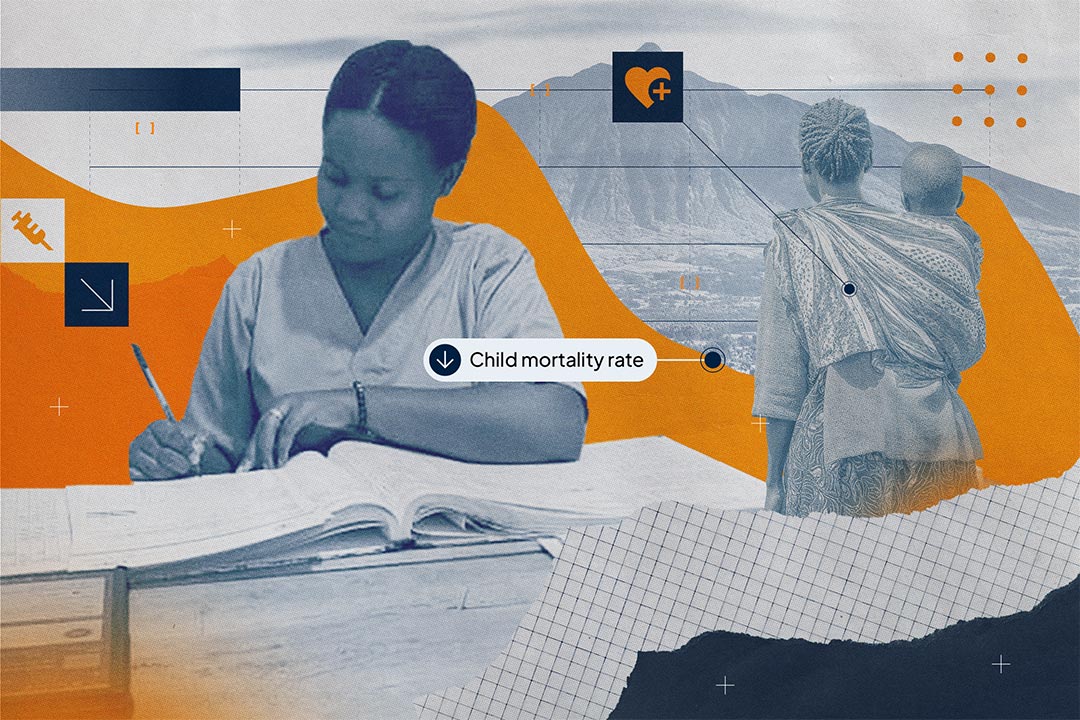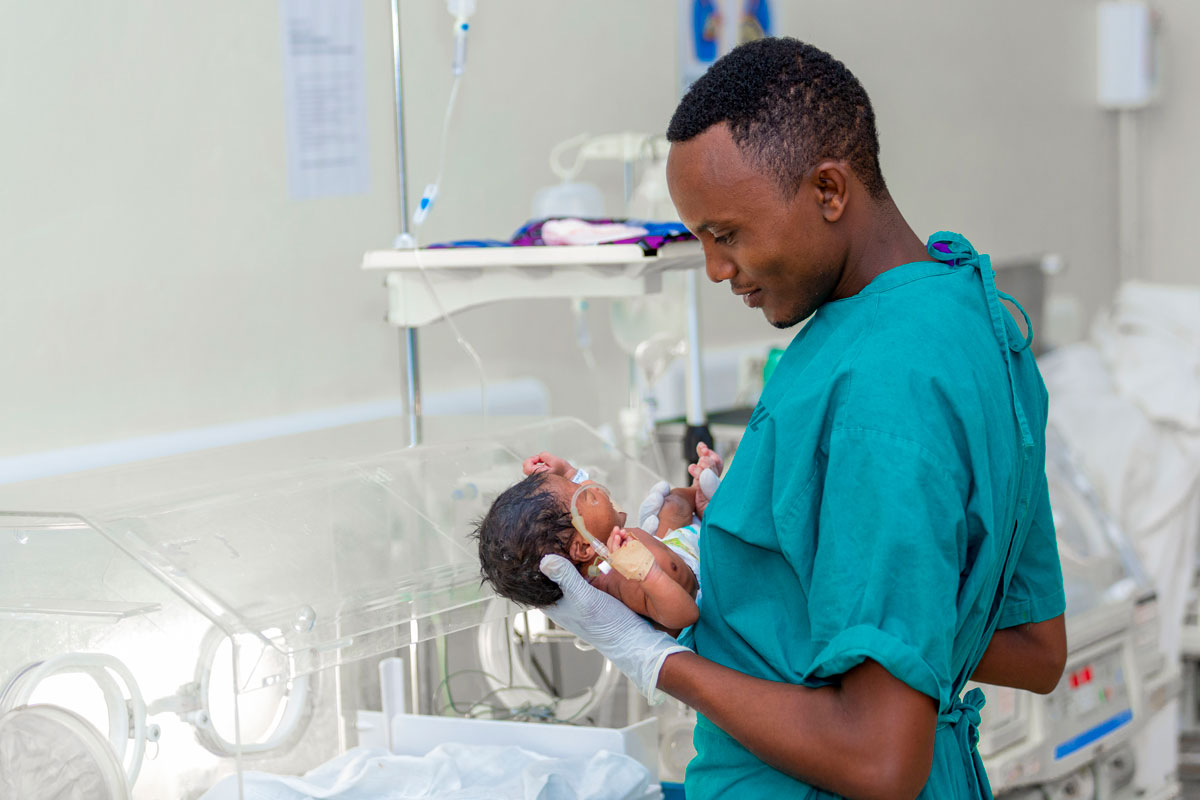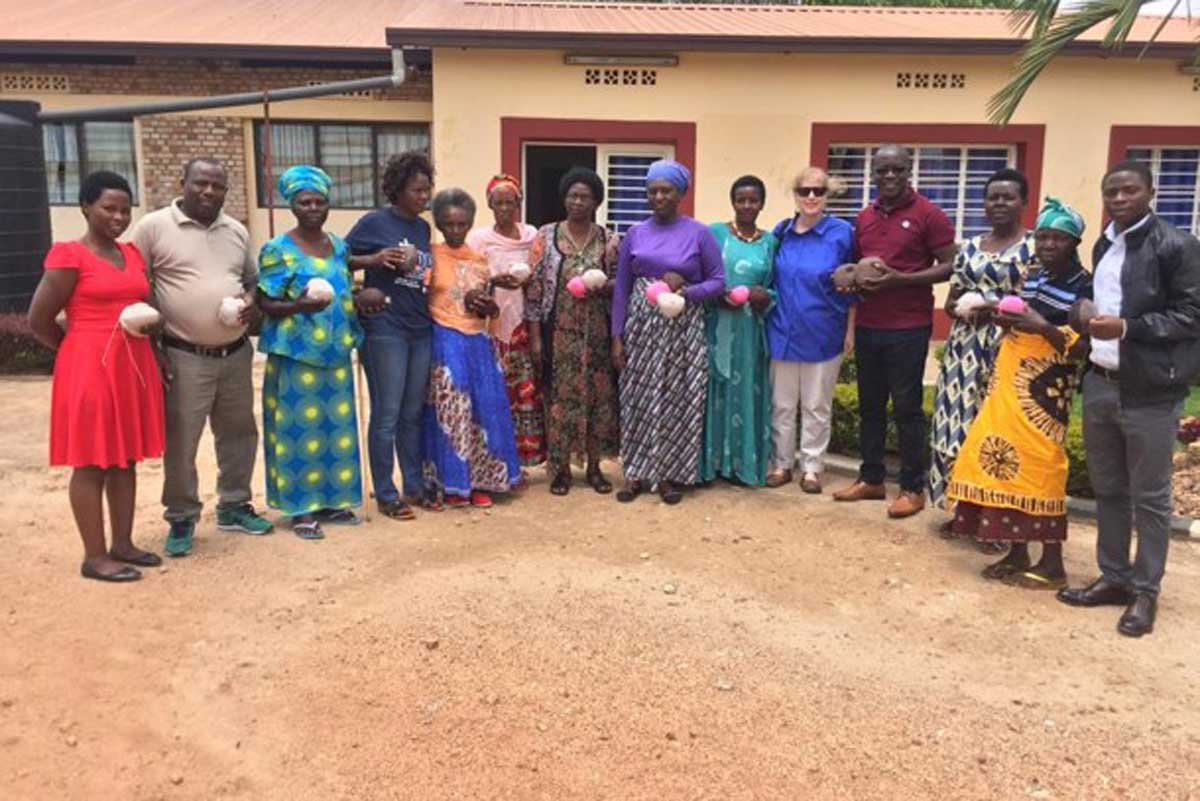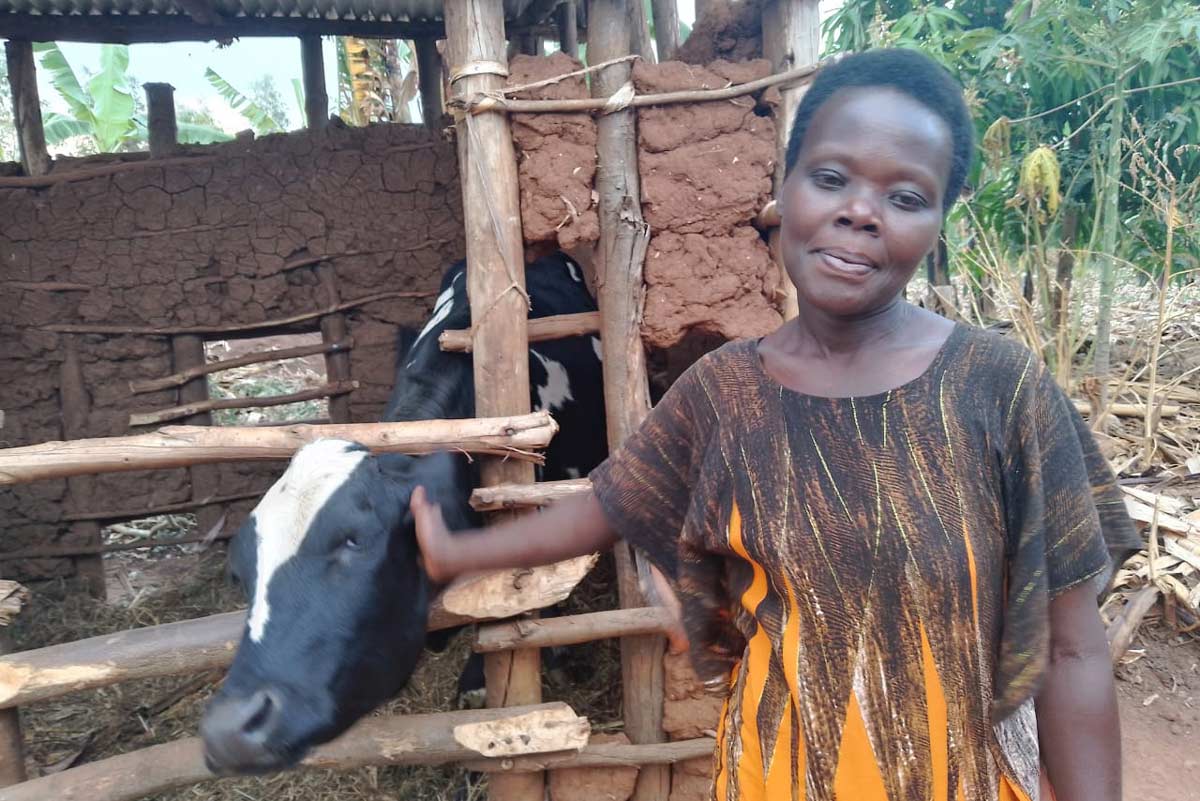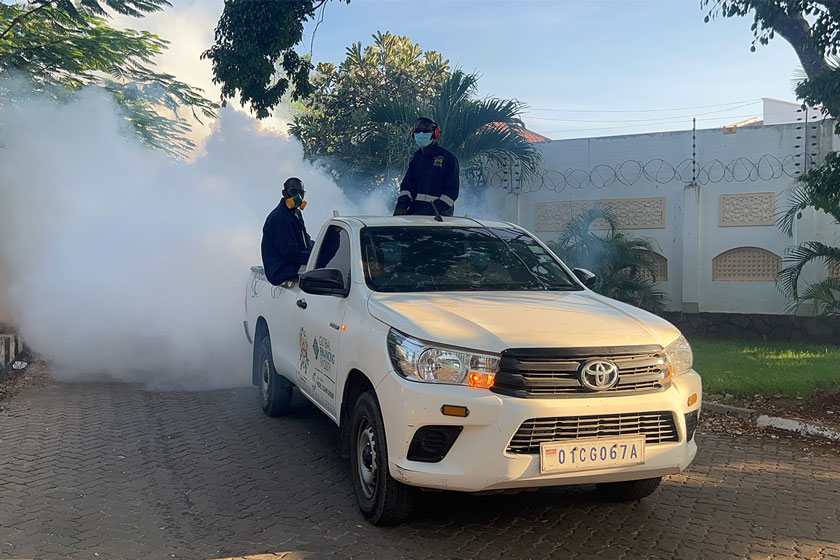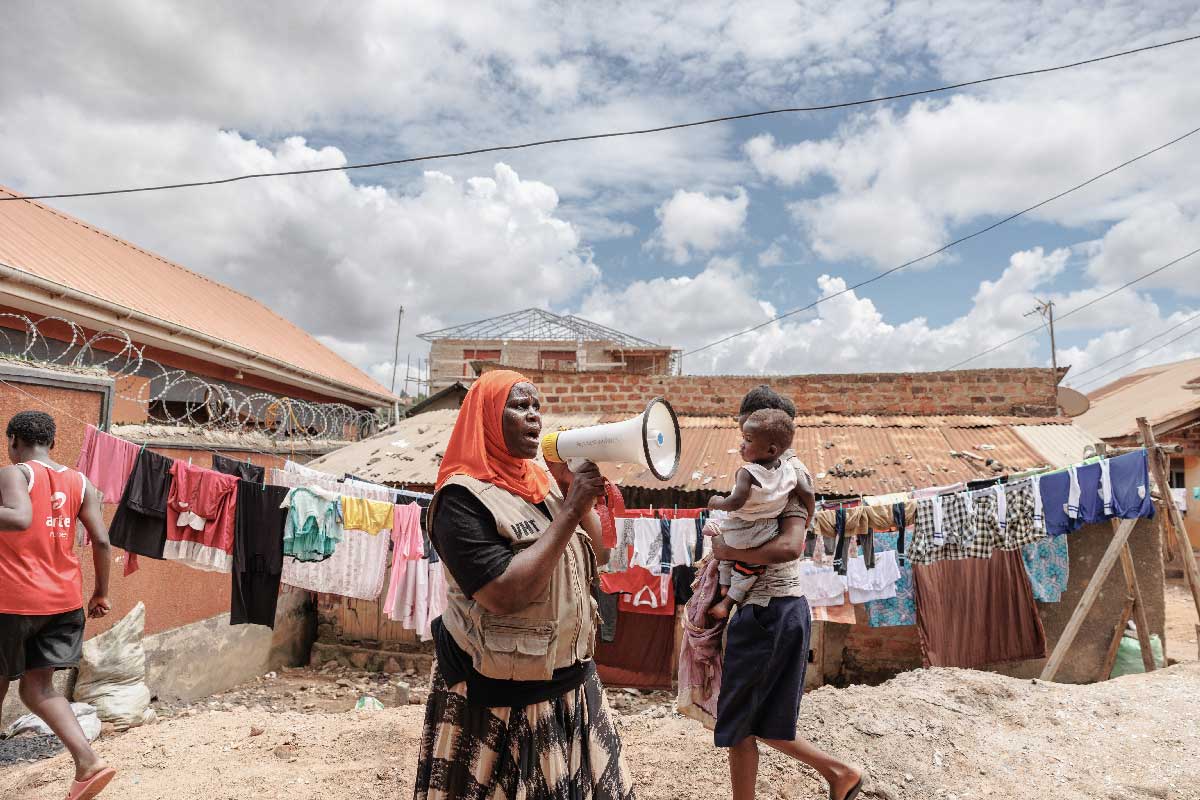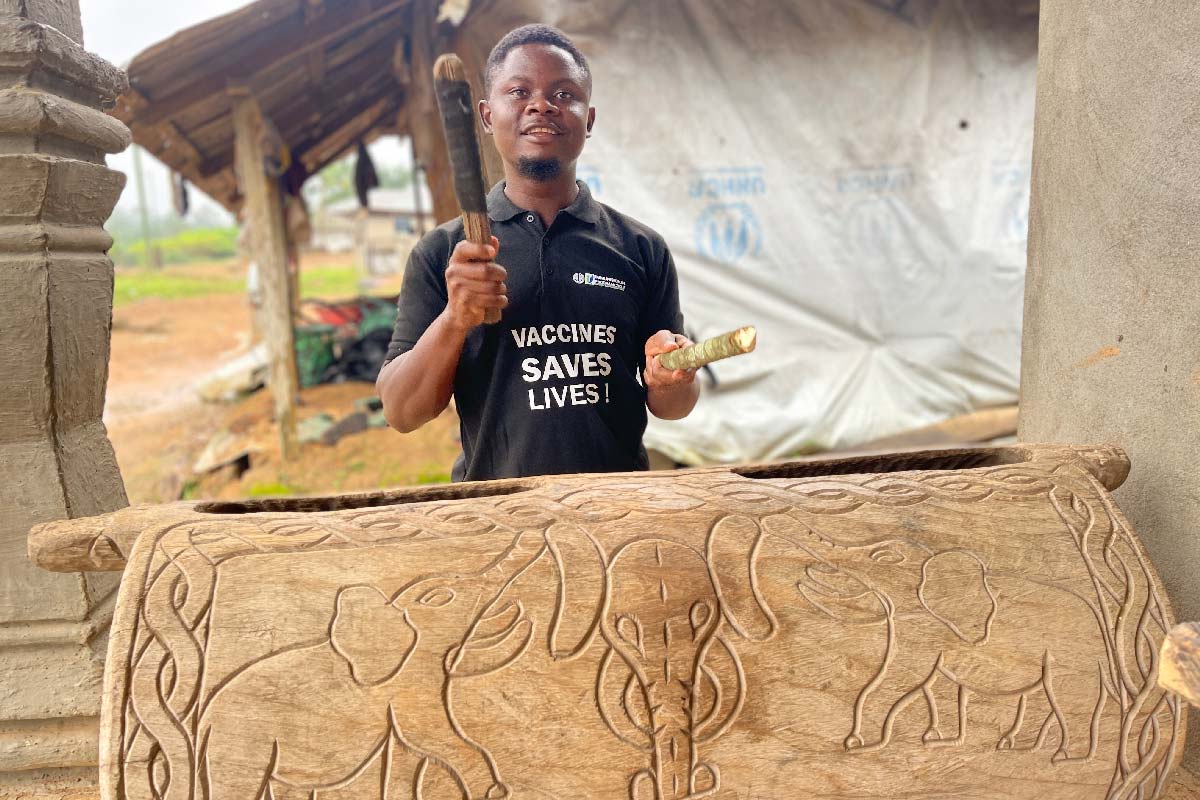Far from paralysed: Rwandan polio survivors stride towards a safer future
A history of conflict cut off their access to vaccines. Now, marked for life by polio, these young Rwandans have their sights set optimistically on the future.
- 21 August 2024
- 4 min read
- by Hudson Kuteesa
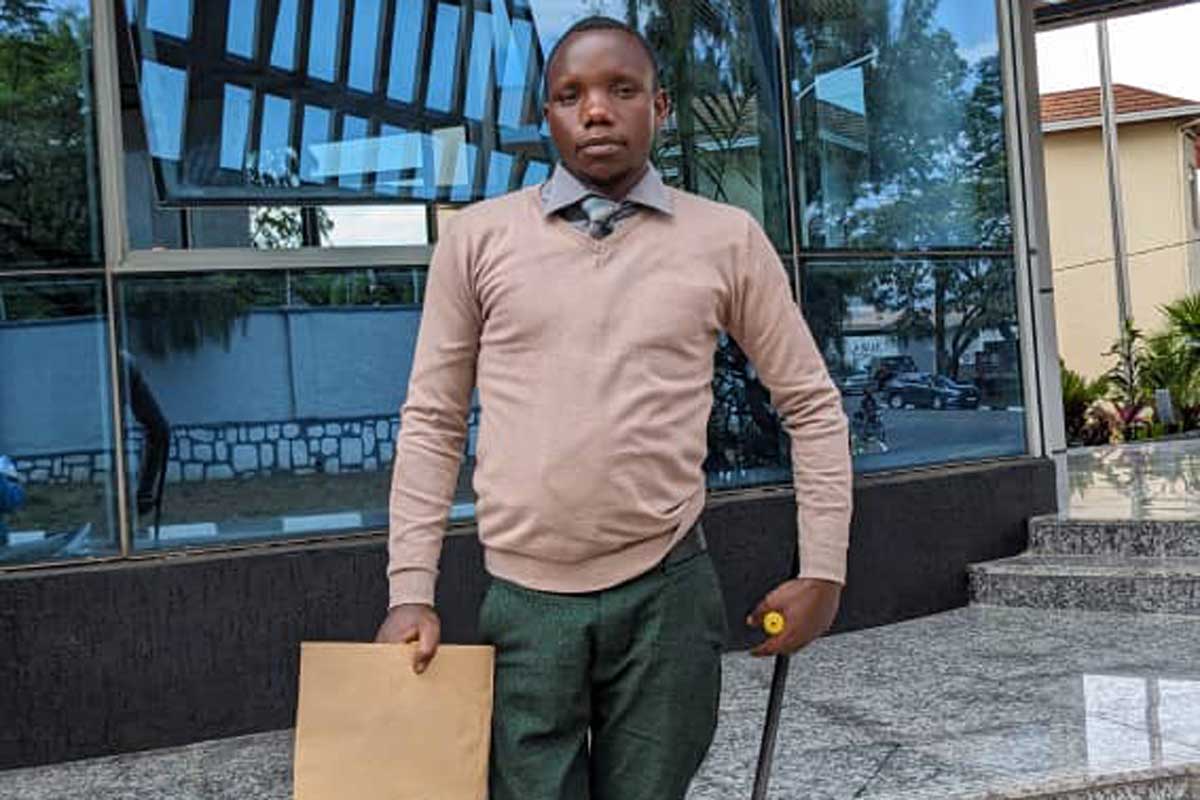
In 1997, when he was five years old, Benjamin Niyibizi from Burera District in Rwanda's Northern Province contracted polio, a life-altering virus that left him with a permanent disability.
In the 1990s, it was not rare to see children having orthopaedic casts on their legs or undergoing traditional treatments for disabilities caused by polio. Like many other developing countries around the world, Rwanda was facing challenges to its health care system, which hampered the vaccination efforts that could have protected children from the paralysing virus.
The country’s routine vaccination programme started in 1980, but its effectiveness was impeded by a number of issues, key among them the political instability that culminated in the 1994 genocide against the Tutsi.
This instability extended into 1997. Conflict had spilled out of the northern parts of the country and into what was then Zaire. Access to essential services, including vaccination, remained hamstrung, especially in the north. Consequently, children like Niyibizi ended up suffering from polio.
The political aspirant
When Niyibizi fell ill, his parents initially mistook it for another illness. But soon, the disease progressed to the point where he couldn't move, forcing his mother to carry him like an infant. His right leg was particularly affected, resulting in permanent disability.
"Vaccination was difficult for some, due to various reasons," Niyibizi explains. "For example, in areas close to Kinigi [a remote, hilly place in northern Rwanda], it was hard because of the civil war. Besides that, some people who lived far from health centres found it hard to have their children vaccinated.”
Due to his disability, he started school late, enrolling in a primary school at age ten. Years later, through perseverance, he graduated with a bachelor's degree in economics from the University of Rwanda.
Today, he is one of the young people determined to play a leading role in Rwanda’s development, During the 2024 elections, he made a first bid for a seat in parliament, though his candidacy was not successful.
As a person who was negatively affected by a vaccine-preventable-disease, he emphasises the crucial role of vaccination for children. "Immunisation protects children from epidemics. Polio is no longer a threat in Rwanda due to vaccination. Vaccines have stopped many epidemic diseases," he says.
The biomedical lab worker
Niyibizi's story mirrors that of Annoncee Nyirangarukiyintwari, who contracted polio at four years of age. Born to Rwandan parents in Zaire (now the Democratic Republic of the Congo) in 1986, she lacked access to vaccines and ended up suffering from polio. "My parents had tried for days to have me vaccinated, but failed," she recalls.
Her illness began with a high fever. Her symptoms were treated with “ordinary medicine”, but her condition worsened. "After about two months, my legs became weak. A medic eventually diagnosed it as polio,” she says.
Nyirangarukiyintwari now uses crutches to walk, since she has disability in both legs.
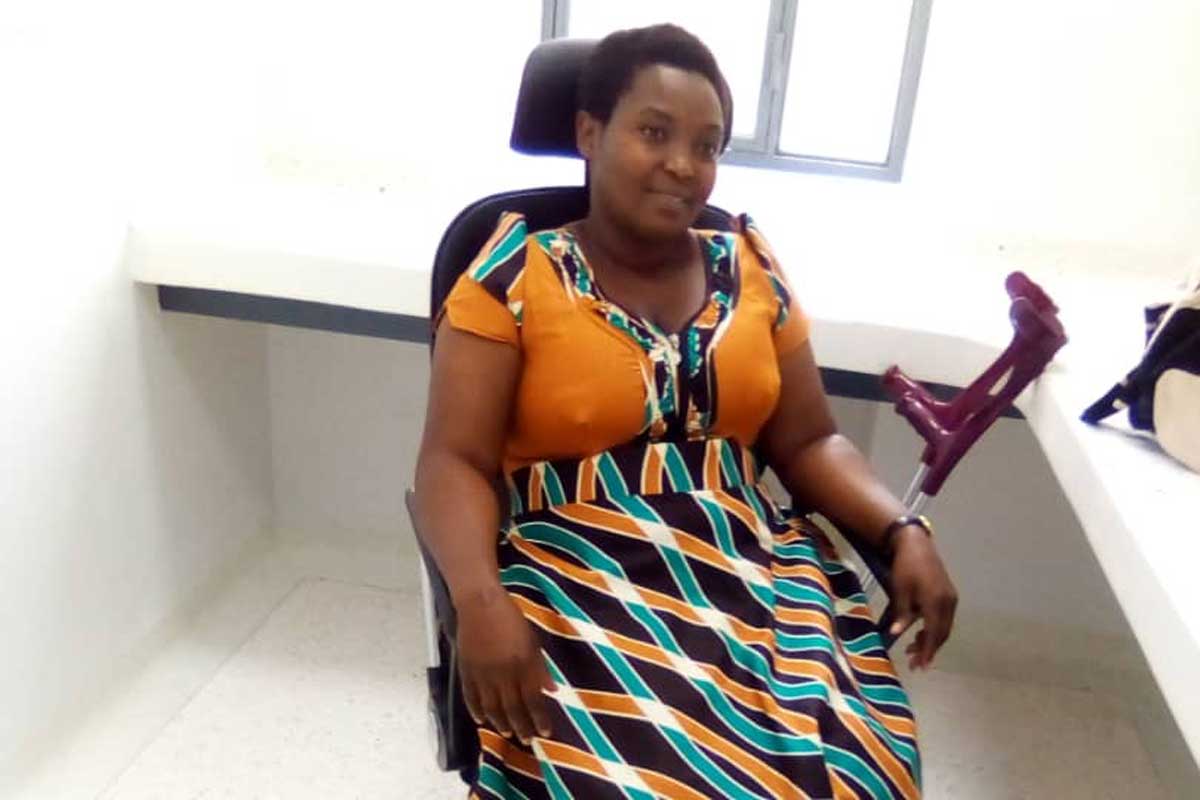
She returned to Rwanda as a young girl in 1994, completed her education and earned a degree in biomedical laboratory science. She now works at Nyarugenge District Hospital's laboratory.
Reflecting on her experience, she underscores the importance of vaccines. "Vaccines have reduced many diseases. Children no longer suffer from [as] many diseases," she observes simply.
“Rwandans understand the benefit of vaccines”
For over 30 years, Rwanda has been free from polio, thanks to effective vaccination campaigns.
Hassan Sibomana, Acting Division Manager for Maternal, Child and Community Health at Rwanda Biomedical Centre (RBC), highlights the impact of vaccines in reducing polio cases by more than 99%.
"Rwandans understand the benefit of vaccines and trust the government's health care provisions," he says. "When the measles vaccine became available, it significantly reduced the disease. Similarly, new vaccines for pneumonia and diarrhoea have quite reduced these diseases in young children," he notes.
Rwanda's routine vaccination programme has expanded to include new vaccines and ensure high community response. "We have achieved high vaccination coverage. According to DHS (Rwanda Demographic and Health Survey) 2020, up to 95.6% of children have received all basic vaccines," Sibomana says.
Have you read?
In 2023, in response to polio outbreaks in neighbouring countries, Rwanda conducted a new vaccination campaign against polio type 2 for all children under seven.
The effort achieved over 95% coverage, vaccinating 1.7 million children. The campaign's success relied on tireless community health workers (CHWs) who raised awareness and visited households to ensure children received the vital polio vaccine drops.
According to the World Health Organization (WHO), 14,424 trained CHWs participated in the campaign, supported by teams from health centres and district hospitals.
Sibomana says that when Rwanda’s vaccination programme began in the 1980s, six antigens were being administered, including BCG, polio vaccine, DPT (diphtheria, pertussis and tetanus-containing vaccine), as well as the measles vaccine. However, since then, the programme has expanded a great deal, and now offers more than a dozen antigens.
